Hook: Have you ever wondered, “ Is it true Invisalign can ruin your bite? You’re not alone. While clear aligners have transformed orthodontic care, rumors about bite issues still swirl. In this article, we dive into expert facts, bust common myths, and show you exactly how to keep your smile safe and strong—whether you’re considering Invisalign or already wearing your first aligner!
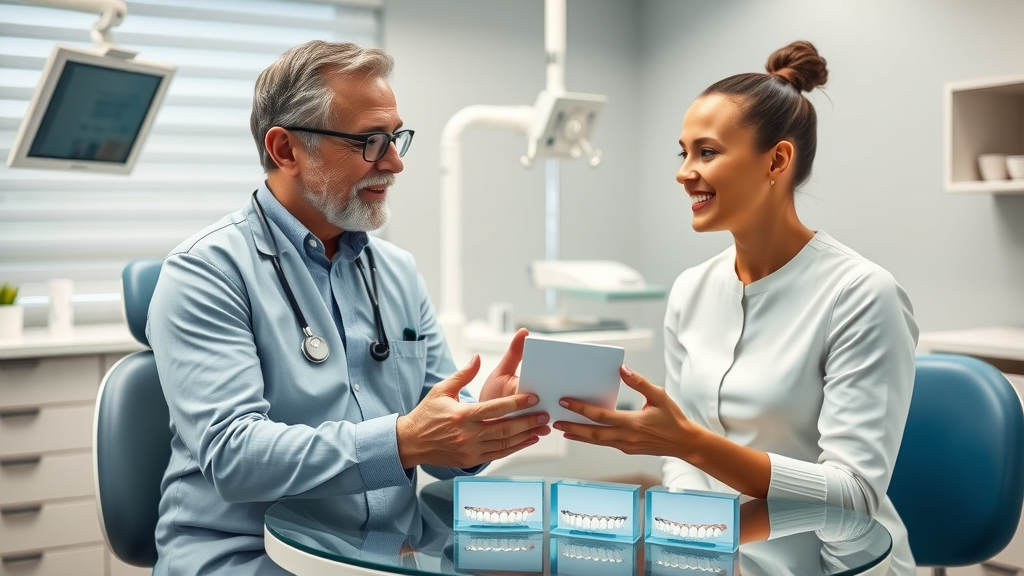
Unpacking the Concern: Is It True Invisalign Can Ruin Your Bite?
-
Question conventional wisdom: Many believe that Invisalign is risk-free, but is it true Invisalign can ruin your bite? Explore the facts you must know.
Many people assume Invisalign is a foolproof, risk-free alternative to braces. But is that really the whole story? It’s important to analyze if the commonly held belief that Invisalign can ruin your bite is accurate or based on misinformation. Before starting any orthodontic treatment, understanding both the benefits and potential risks is crucial to ensure your long-term dental health .
Let’s tackle the concerns head-on: Some patients have heard stories about open bites or other bite issues after Invisalign treatment. Could clear aligners really harm the alignment of your top teeth and lower teeth ? In this comprehensive guide, we’ll review what research shows, who may be at higher risk, and how dentists ensure that Invisalign actually improves—not ruins—your bite. We’ll also share the warning signs to watch for, and the steps you and your provider can take to ensure a healthy, lasting smile.
The Essentials: What You’ll Understand About Invisalign Treatment, Bite Problems, and More
-
How Invisalign treatment works for bite correction
-
Risks of bite problems with aligners
-
Common myths about open bite and bite issues
-
Interplay between good oral hygiene and orthodontic health
-
Actionable advice from dental professionals
By reading on, you’ll gain a full understanding of how Invisalign treatment is designed to work, the actual risks involved when it comes to your bite issues , and the most common myths about open bite and other bite-related dental issues. We’ll discuss how maintaining good oral hygiene supports not only your oral health but helps treatment go smoothly. Plus, you’ll get actionable advice from orthodontic experts to help you achieve the smile you want—without risking your bite.
This article provides practical, easy-to-follow information so that you can confidently decide whether Invisalign is right for you and understand how to take care of your aligned teeth during, and after, the process.
Understanding Invisalign Treatment: What Is It and How Does It Work?
Invisalign treatment is a modern alternative to traditional braces. Instead of wires and brackets, Invisalign uses a series of custom-made, clear aligners to gradually move your teeth into their desired positions. Each set is worn for about two weeks, gently and predictably directing your teeth back to their ideal location based on your personalized treatment plan .
With its popularity rising, many patients turn to Invisalign aligners for their discreet look and removal convenience. But it’s not just about looks. Invisalign treatment is suitable for correcting a wide range of orthodontic concerns: crooked front teeth , crowded lower teeth, and even some bite problems like overbite, underbite, and crossbite. That said, outcomes do depend on the qualified dentist or orthodontist overseeing your care and your compliance with wearing the aligners as instructed.
Is Invisalign Treatment Safe for Your Bite?
Safety is a valid concern, especially when it comes to something as important as your bite. Generally, Invisalign treatment is considered safe and effective for most patients. The aligners are designed using sophisticated digital technology, mapping tooth movements to ensure gradual and precise shifts. For most people, this means a healthy improvement in both alignment and bite—not bite issues.
However, improper use or lack of professional supervision can introduce risks, such as open bites or misalignment. Not wearing aligners for the required number of hours or failing to attend regular check-ups increases the likelihood of bite problems . This highlights why working with an experienced orthodontist who understands complex orthodontic treatment planning is vital. Consistency and clear communication with your provider keep your bite correction on track, preserving both your oral health and your smile’s aesthetics.
How Invisalign Treatment Addresses Bite Issues
One of Invisalign’s remarkable advantages is its ability to target specific bite issues . Through careful design, each set of aligners exerts gentle pressure tailored to your bite correction needs. For example, aligners can help address cases where the upper teeth don't overlap the lower teeth properly, such as open bite or excessive overbite.
Still, the extent of bite correction achievable depends on your unique dental anatomy and the complexity of your case. Some severe bite problems —especially those involving jaw structure—may still require traditional braces or even surgery. The good news is that for many common bite concerns, Invisalign is an excellent, less invasive solution, especially when combined with good oral hygiene and dentist-monitored progress.
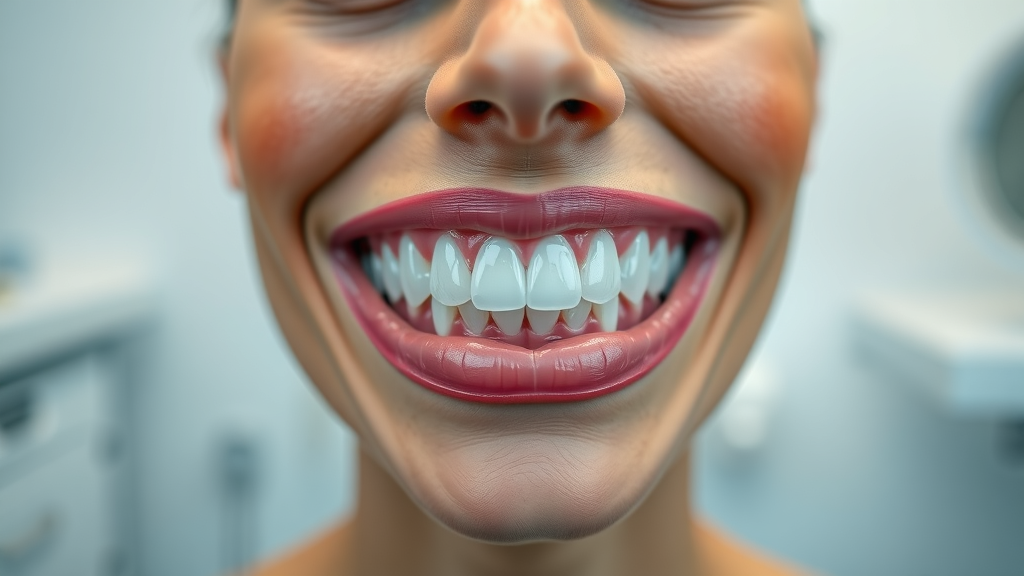
Bite Problems Explained: Types, Causes, and Risks
To understand how Invisalign could impact your bite, it’s essential to know about various bite problems . The way your upper and lower teeth meet when your mouth is closed affects not only your smile but also speech, chewing, and long-term oral health.
Common bite issues include open bite (where the upper teeth and lower teeth do not touch), crossbite (where some top teeth are positioned inside the bottom teeth), overbite (top teeth cover too much of the lower teeth), and underbite (lower teeth stick out farther than the upper teeth). Causes can range from genetics and childhood habits to trauma or lost teeth. Untreated, these bite issues can lead to jaw pain, abnormal tooth wear, speech difficulties, and worsening dental health .
Invisalign treatment can help correct many of these issues, but clear aligners must be planned and used carefully. Without close monitoring, improper movement could potentially introduce or worsen open bites or other alignment issues. Partnering with a skilled provider and adopting good oral hygiene practices are key to minimizing any risks.
What Is an Open Bite and How Can Invisalign Influence It?
An open bite occurs when your upper and lower front teeth do not meet, even when your back teeth are closed together. This space can make it hard to bite into certain foods or pronounce some words, affecting both function and confidence. Open bites can be caused by thumb sucking during childhood, tongue thrust, genetics, or failed orthodontic treatment.
Invisalign treatment can both correct and—if not carefully managed—worsen open bites. When aligners are expertly planned, they apply precise movements to guide the front teeth and even back teeth toward proper closure. However, if aligners are worn inconsistently, or if the treatment plan does not address the underlying cause (such as tongue thrusting), an open bite might persist or even develop. That’s why a qualified orthodontist’s oversight is so important.
Fortunately, for mild to moderate open bites, Invisalign offers a comfortable and speedy solution compared to traditional braces. Still, regular assessment and follow-up visits are vital to avoid complications and ensure successful bite correction .
Exploring Common Bite Issues After Invisalign Treatment
After finishing Invisalign treatment , most patients enjoy straighter and healthier bites. Yet, some may notice minor bite changes. Sometimes, these shifts are temporary, resulting from ongoing tooth settling or slight changes as teeth stabilize in their new positions. For others, bite concerns may arise if compliance, monitoring, or treatment planning was insufficient.
The most frequent post-treatment bite issues include open bites that didn’t fully resolve, a slight misalignment of front or back teeth, or a sensation that teeth aren’t fitting together like before. These issues are often addressed with refinements—additional aligners or minor adjustments. Long-lasting problems are rare and almost always preventable through a well-designed treatment plan , good oral hygiene , and prompt reporting of any changes felt during or after treatment.
In summary, while bite problems post-Invisalign are possible, they’re not the norm. Staying proactive, adhering to your aligner schedule, and trusting your provider’s expertise will help ensure your bite remains healthy and strong.
Can Invisalign Ruin Your Bite?: Myths Versus Clinical Evidence
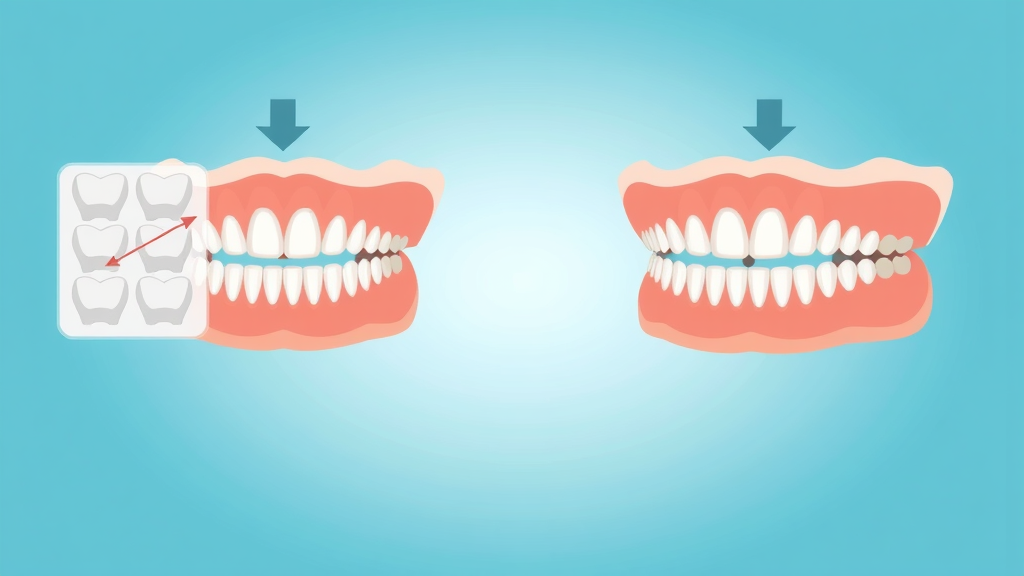
There’s no shortage of online myths regarding clear aligners and bite ruin. But what does the clinical evidence actually say? Multiple studies have shown that, when conducted under proper orthodontic supervision, Invisalign treatment rarely leads to lasting bite issues —and, in fact, offers high success rates for correcting mild to moderate bite problems .
Myths such as “all aligners cause open bites ,” or that they can permanently “destroy” your bite, often stem from rare negative outcomes due to improper or unsupervised use. Most invisalign treatment problems result from inconsistent aligner wear, “do-it-yourself” treatment, or lack of follow-up rather than from the technology itself. Reputable studies and expert commentary consistently point to predictable success with clear aligners when patients and providers partner together with careful monitoring and compliance.
If you’re considering aligners but worry about bite health, remember: the skill and experience of your provider, plus your adherence to the treatment plan , are the biggest factors that influence outcomes—not the aligners themselves.
Are Bite Problems Permanent After Invisalign Treatment?
Most bite changes that develop during or after Invisalign therapy are not permanent . If detected and addressed quickly by your provider, these bite problems can often be resolved with refinements, extra aligners, or minor retainer tweaks. In rare situations, more significant correction may be needed, but permanent misalignment is very uncommon when proper care protocols are followed.
It is important to report any sensation of teeth not meeting properly, shifting, or changes in bite pressure immediately so small issues don’t become big problems. Delayed attention can make bite correction harder, but most patients experience desirable, long-term results with invisalign treatment .
Expert Opinions on Bite Correction and Good Oral Outcomes
Expert Quote:
“When done correctly, Invisalign treatment should improve your bite — not harm it. Issues most often result from non-compliance or improper treatment planning.” – Dr. Jamie Morrison, Board-Certified Orthodontist
Leading orthodontists agree: good oral hygiene , close supervision, and consistent aligner wear are the keys to ensuring a successful outcome. The overwhelming majority of patients, when working closely with a certified provider, find their invisalign treatment is both safe and transformative for their oral health —with minimal risk of lasting bite issues .
Recognizing and Preventing Bite Issues During Invisalign Treatment
-
Monitoring by dental professionals
-
Preventive oral hygiene habits
-
Complying with aligner wear instructions
-
Reporting bite changes early
Protecting your bite is a team effort. Working with experienced orthodontic treatment providers who routinely assess your progress ensures that any developing bite issues are noticed early. Proactive oral hygiene practices support not only clean aligned teeth , but also successful tooth movement.
The good news is that by wearing your aligners for the full recommended hours, attending your check-ups, and reporting any discomfort or bite changes quickly, you drastically reduce the risk of negative outcomes. This proactive approach creates the best environment for long-term oral health and bite stability.
The Importance of Good Oral Hygiene
Good oral hygiene during invisalign treatment directly impacts your oral health and the final position of your teeth. Clean teeth move more predictably, reducing the risk of gum disease or cavities, which could complicate alignment. Brushing after meals and before reinserting aligners, using flossers or water picks, and choosing sugar-free drinks helps ensure your orthodontic treatment stays on schedule.
Poor oral hygiene can cause not only dental issues but also slow tooth movement, potentially resulting in the need for longer treatment or additional correction. Make consistent cleaning a daily habit and ask your provider for personalized tips to keep your smile and your bite in top shape.
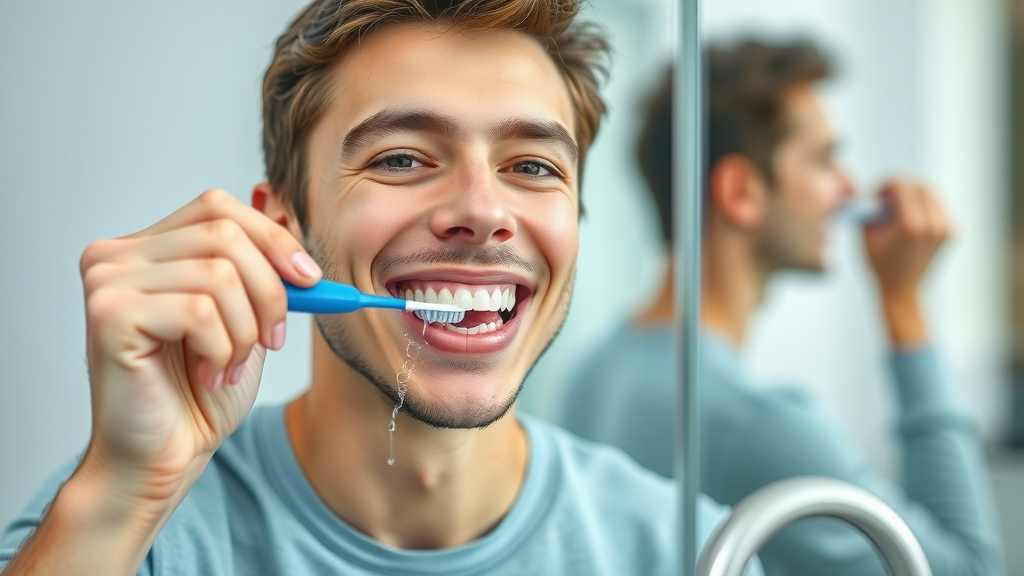
Early Warning Signs of Bite Problems
Catch potential bite issues early by monitoring for key changes: a sudden shift in how your top and bottom teeth fit together, new discomfort or jaw pain when chewing, or increased difficulty biting into foods. Other warning signs include clicking when the mouth is closed , sensitivity in the front teeth , or the feeling that your teeth are not lining up as before.
If you notice anything unusual, don’t wait. Report it to your provider. Early intervention is the best defense against lasting complications and keeps your invisalign treatment on the right track. Open, honest communication makes all the difference in a smooth, successful outcome.
Post-Treatment: Addressing Open Bite or Bite Issues After Invisalign
Completing invisalign treatment marks an exciting new chapter in your oral health journey. Still, it’s wise to monitor your bite closely as your teeth stabilize and your new smile sets in. Some minor post-treatment shifting is natural, but ongoing or new open bite and bite issues should be addressed promptly.
Setting up post-treatment evaluations with your orthodontist helps ensure your smile and bite remain where they should. Your provider can also offer targeted advice to strengthen oral hygiene, reinforce retention, and correct any emerging problems before they become significant.
Managing Open Bite Complications and Getting Bite Correction
If an open bite or other bite problems are detected after your Invisalign course, don’t panic. Most cases can be managed with additional aligner trays, minor refinements, or, in rare situations, limited braces. Refinement trays are designed to “fine-tune” tooth positions, closing open bites or aligning the front teeth for optimal function.
Severe or persistent cases may require alternate therapies, especially if jaw structure or muscle patterns play a role. Your orthodontist will assess if switching to traditional braces or using removable appliances is warranted. The critical step is seeking help early, so never hesitate to “schedule a consultation” if something feels off! Your bite, and your self-esteem, are worth it.
Long-Term Bite Health and Good Oral Hygiene Habits
Maintaining your results is all about consistency. Continue practicing good oral hygiene —brush, floss, and use your retainer as prescribed. Regular dental check-ups detect small changes before they become major bite issues .
Keeping a close partnership with your dental team and staying alert to changes in your bite will help you enjoy the benefits of invisalign treatment for years to come. The effort you invest now gives you a healthier, more confident smile for life.
|
|
|
|
Comparing Invisalign, Braces & No Treatment on Bite Outcomes: |
|
Treatment Type |
Risk of Bite Problems |
Open Bite Incidence |
Impact on Oral Hygiene |
|---|---|---|---|
|
Invisalign |
Low (when monitored) |
Rare |
Easier cleaning |
|
Braces |
Moderate |
Rare |
Challenging at times |
|
No Treatment |
High |
Possible |
Variable |
People Also Ask: Bite Problems and Invisalign
Does Invisalign ruin a bite?
If managed correctly by an experienced provider, Invisalign does not ruin your bite. However, improper planning or inconsistent wear can lead to bite issues, highlighting the need for regular check-ups.
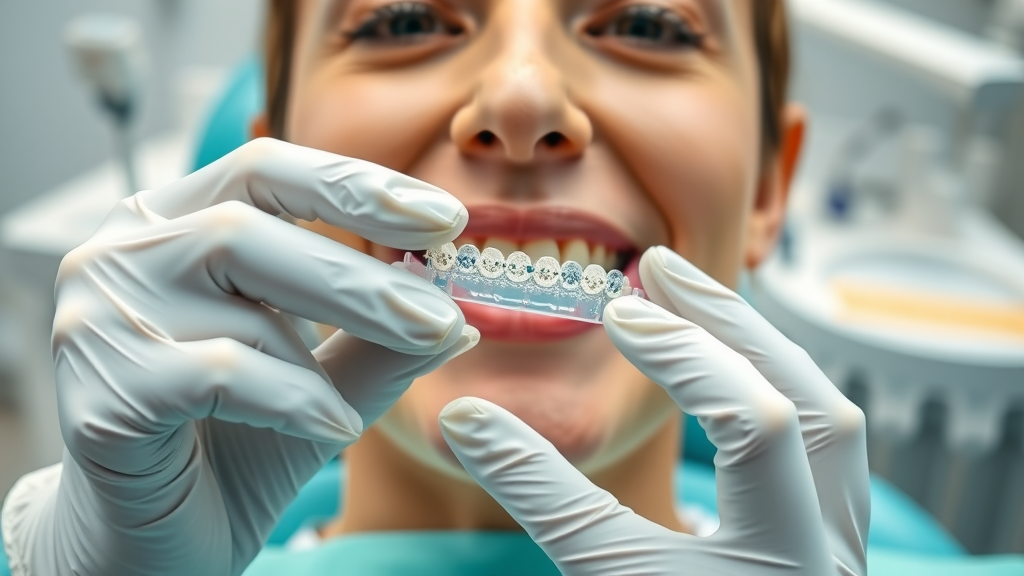
Why is my bite messed up after Invisalign?
Bite changes after Invisalign can be temporary or relate to incomplete movement or noncompliance. Your orthodontist can provide guidance for resolving these issues and ensuring proper bite correction.
Why do dentists not recommend Invisalign?
Some dentists may avoid recommending Invisalign for complex bite problems best treated with braces or surgery, as clear aligners have certain limitations in correcting severe open bite or bite issues.
Can Invisalign damage the jaw?
In rare cases, if aligners are poorly fitted or worn incorrectly, bite forces can be altered and affect the jaw joint. Choosing a reputable provider and following instructions is essential for bite and jaw health.
Straight Answers to Invisalign, Bite Problems, and Oral Hygiene FAQs
-
Can you fix a bite issue with Invisalign treatment?
-
How do I know if Invisalign is affecting my bite?
-
Does good oral hygiene affect aligner outcomes?
-
How to address open bite after aligner therapy?
-
What are signs of bite issues?
Can you fix a bite issue with Invisalign treatment?
Yes, Invisalign can correct many common bite issues such as mild open bite, overbite, or crossbite—especially when the case is carefully planned by a qualified orthodontist and you comply with aligner wear instructions.
How do I know if Invisalign is affecting my bite?
Monitor how your teeth fit together when your mouth is closed, any new difficulty chewing, or discomfort in your jaw. Report any changes immediately to your provider for assessment.
Does good oral hygiene affect aligner outcomes?
Absolutely! Clean teeth and gums support smooth, predictable tooth movement, reduce the risk of cavities, and ensure your bite stays healthy during and after Invisalign treatment.
How to address open bite after aligner therapy?
If you notice an open bite, schedule a follow-up with your orthodontist promptly. Most cases can be managed with refinement aligners or additional treatments.
What are signs of bite issues?
Changes in how your teeth meet, difficulty biting, jaw pain, tooth sensitivity, or snapping sounds in your jaw can all be early indicators. Early reporting helps prevent long-term problems.
Essential Tips for Preserving Bite Health During and After Invisalign
-
Schedule regular orthodontic reviews
-
Follow all Invisalign treatment instructions diligently
-
Keep up with excellent oral hygiene
-
Report bite changes as soon as possible
Quote:
“Maintaining bite health with Invisalign is a partnership between you and your provider. Proactive communication solves most issues early — and your smile benefits for years to come.” – Dr. Olivia Brooks

Your Smile, Your Decision – Stay Informed and Connected
-
Your smile is worth it — and staying informed is the first step. Join hundreds of locals already following Grand Strand Smile Spotlight for updates, advice, and trusted care insights.
Take Action: Commit to regular check-ups, follow your treatment plan, and never hesitate to speak up about any bite concerns. Your proactive care ensures lifelong bite health and a confident smile.
Invisalign is a popular orthodontic treatment known for its discreet appearance and convenience. However, concerns have been raised about its potential impact on bite alignment. While Invisalign can effectively correct various bite issues, improper use or lack of professional supervision may lead to complications.
For instance, biting or clenching on aligners can damage them, disrupt tooth movement, and cause jaw discomfort. Additionally, if aligners are not worn for the recommended duration each day, certain teeth may not fully shift into place, leading to bite misalignment. Therefore, it’s crucial to follow your orthodontist’s instructions and attend regular check-ups to ensure a successful outcome.
In summary, when used correctly under professional guidance, Invisalign is unlikely to ruin your bite. However, patient compliance and proper supervision are essential to prevent potential issues.
 Add Row
Add Row  Add
Add 

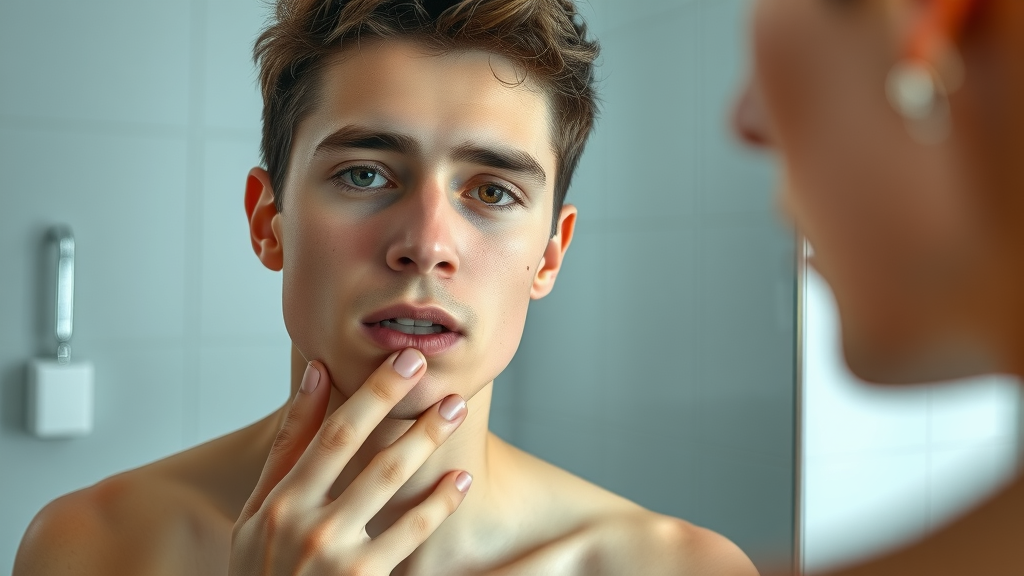
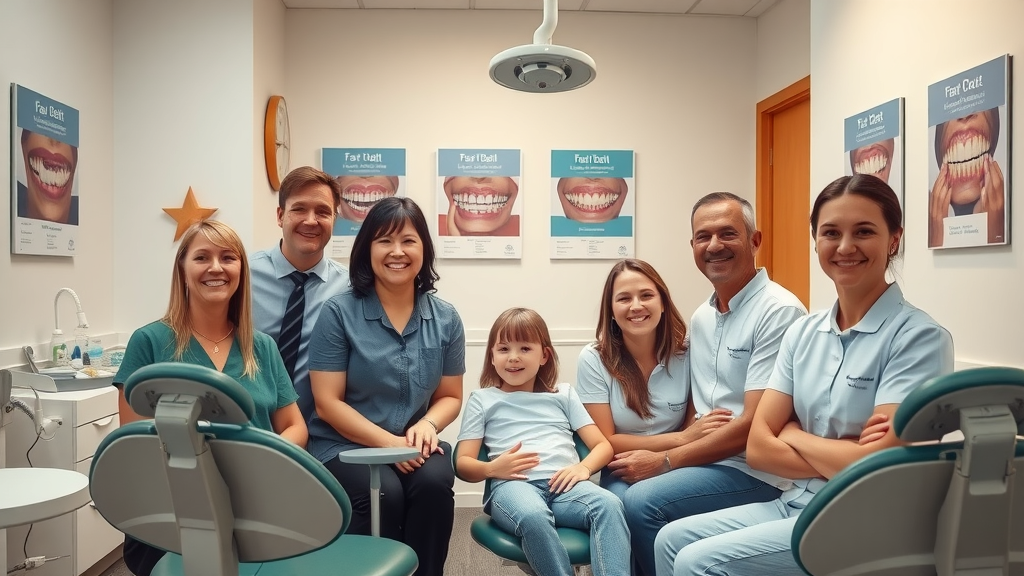
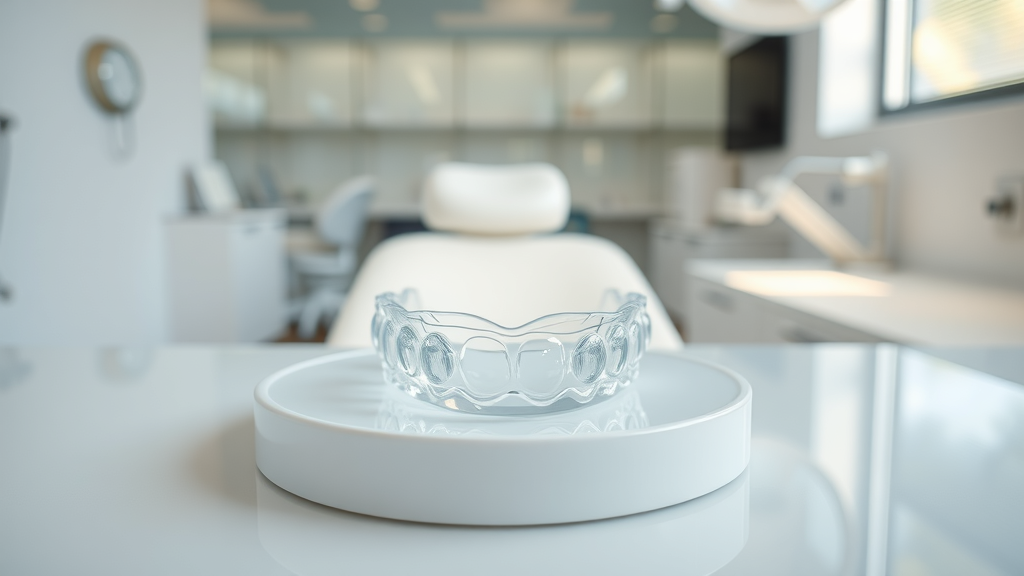
Write A Comment